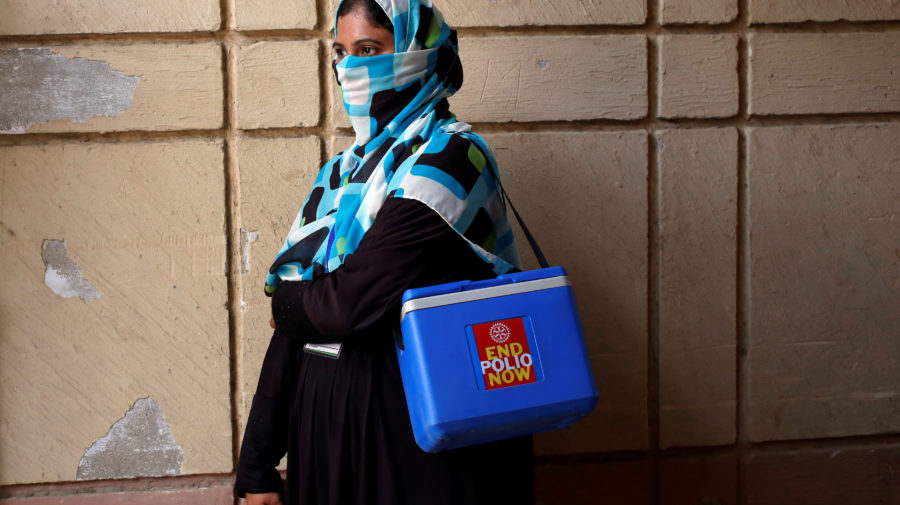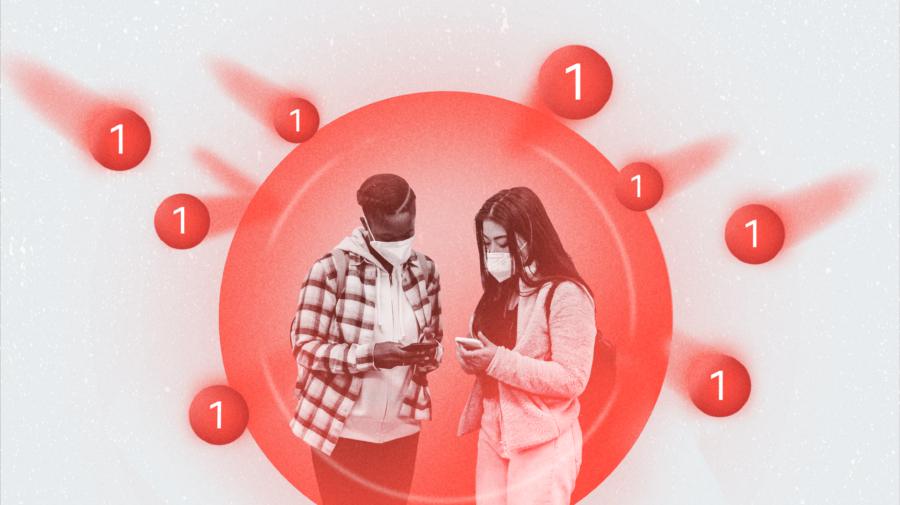This article is part of a series on health misinformation.
Private school teacher Nazar Muhammad stands in a hospital in Peshawar, north-west Pakistan, and pleads into the camera.
“Look at all of these unconscious [children]!” he shouts desperately in Urdu, the local language, as the video pans to a group of young boys flopping onto a hospital bed, one by one.
“If we give it to them, they become unconscious, if we don’t give it, the police catch us! They take us away if we don’t give them the polio [vaccination].”
At a glance, the children could appear to be gravely ill. But on closer listening, Muhammad can be heard instructing the boys, otherwise standing or sitting up, to lie down on the beds on command.
The clip is just one of several staged videos posted to Twitter and Facebook from the province of Khyber Pakhtunkhwa in April 2019, all of which falsely report children falling gravely ill after receiving the polio vaccine.
Repeated studies have proven the treatment, often administered in mouth drops, to be safe and effective but misinformation around it is persistent in the region, where parents commonly refuse vaccines for their children.
In the hours that followed, 25,000 children were taken to hospital by their terrified parents in the city of Peshawar alone, believing the youngsters had been poisoned. By the end of the week the number had hit 45,000.
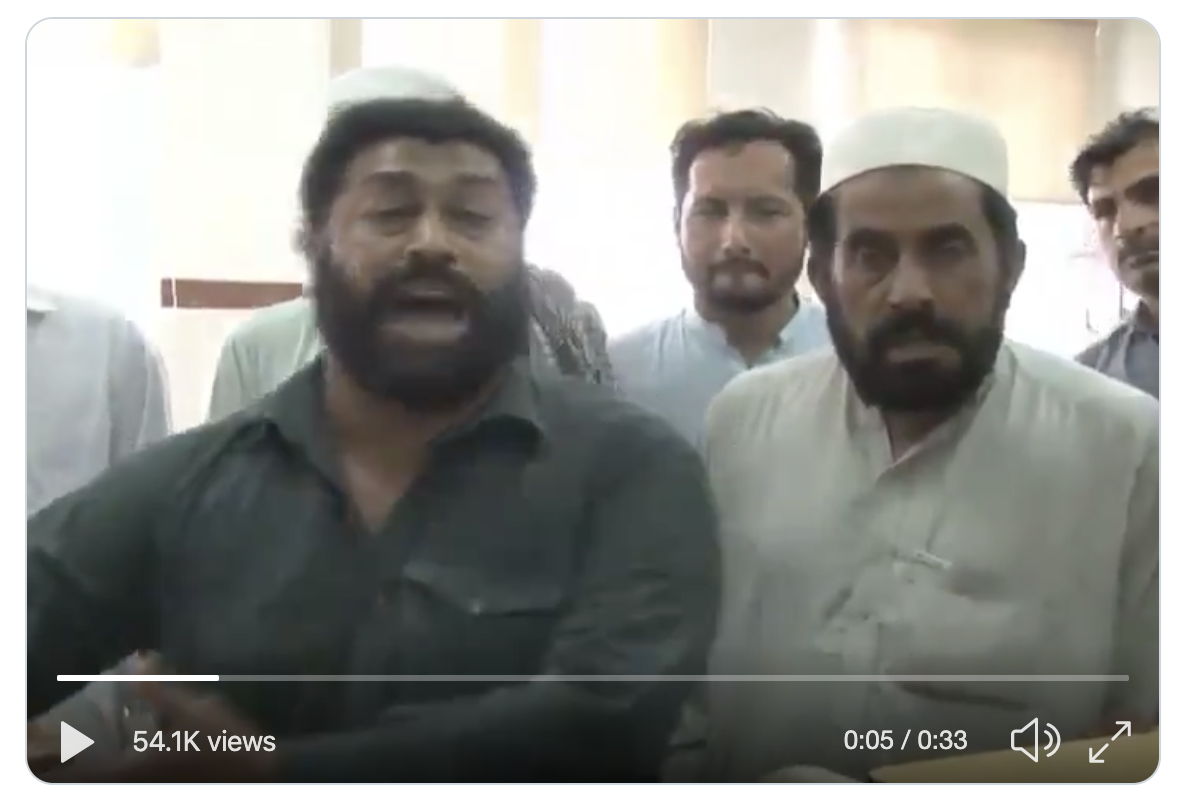
Private school teacher Nazar Muhammad in a video posted to Twitter on April 22 2019, falsely claiming children were falling sick after receiving the polio vaccine. Screenshot by author.
Dr Asad Ali, the deputy director of Monitoring & Evaluation at Pakistan’s Federal Expanded Program on Immunization (EPI), one of several government programmes aimed at eliminating polio, described the impact on the region as “explosive”.
The videos were part of an anti-vaccine disinformation campaign that caused mass panic in the country and derailed efforts to immunise millions of children, as detailed in a new case study from First Draft.
Read the full study: Understanding the impact of polio vaccine disinformation in Pakistan
As misinformation about the coronavirus continues to outpace the disease’s spread around the world, the research highlights just how damaging health misinformation can be.
Many of the videos in Pakistan went viral almost instantly. Of those that are still online, clips of the staged scenes gained more than 24,000 interactions on Twitter alone within 24 hours of being posted. More circulated on Facebook and WhatsApp.
They quickly became a red-hot engine for polio vaccine misinformation in Pakistan – the only country other than Afghanistan where the infectious disease, which mainly affects children under five and can cause paralysis, is still endemic.
A decades-long international immunisation campaign has reduced global cases of polio by 99%, with the World Health Organization reporting just 33 instances of polio worldwide in 2018, 12 of which were in Pakistan. In 2019, 144 cases were reported in Pakistan, with 92 in the province of Khyber Pakhtunkhwa, where the videos originated.
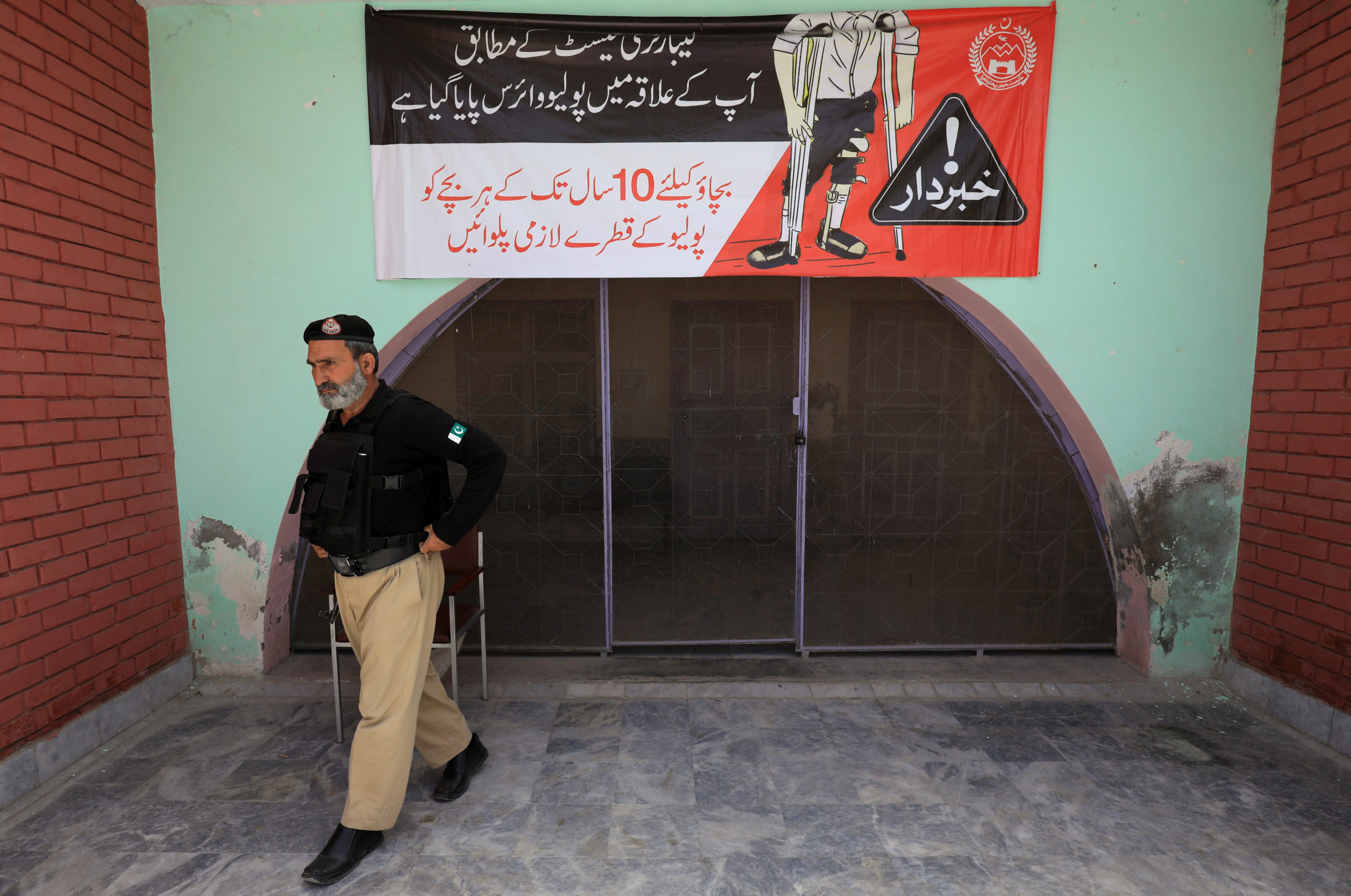
A police officer walks outside a Polio Vaccination centre in Peshawar, Pakistan April 26, 2019. Picture taken April 26, 2019. REUTERS/Fayaz Aziz
In the same week as the videos spread, a mob of 500 people set fire to a health clinic in Peshawar and mosque loudspeakers broadcast rumours that polio medicines were “poisonous”. Three people – two police officers and one female health worker – died in the frenzy.
“The power of misinformation was that the campaign got suspended, people got confused, coverage was low and health facilities were burned,” said Dr Ali.
“The city was kind of choked,” he added.
The provincial health department called the disinformation campaign a “coordinated conspiracy to disrupt the polio immunisation drive” and police arrested at least 12 people, including Mr Muhammad, over the videos.
But several verified Twitter accounts also reshared the clips. The official account of the prime minister’s political party, Pakistan Tehreek-e-Insaf, pointed out the fraudulent nature of the clip but shared it anyway, where it has since received nearly 50,000 views.
Most of the original videos have been removed from social media, according to the study analysing the data. But reuploads are still viewable and shareable today.
“The videos spreading misinformation were so effective at proliferating across social media because of the emotion captured in them,” explained Sarika Bhattacharjee of New York University, the lead researcher on the study which analyses how the videos spread and had such a devastating impact on polio eradication efforts.
Videos and memes are known for being more popular and powerful than text-based misinformation and in Pakistan they appeared to be the main vessel by which the anti-vaccine claims travelled.
“It’s one thing to read an article about vaccines potentially making children fall ill, and another thing to see someone passionately warning people against vaccinating their own children,” Bhattacharjee said. “Social media has a unique ability to spread emotionally-charged messages across cities, countries and platforms.”
Strong misconceptions about the vaccine — from their content to their source — are the main reason for the refusals, said Dr Ali.
False rumours that the polio vaccine contains foods forbidden in Islam or toxic ingredients that make children sick have circulated for years, as have unsupported claims that the medicine is the Western world’s way of poking around in the country’s affairs — spurred by the real-life CIA campaign to obtain Osama Bin Laden’s DNA through a fake vaccination drive in 2001.
Religious and cultural factors, as well as a lack of trust in health authorities and the government, also played a part, Dr Ali said.
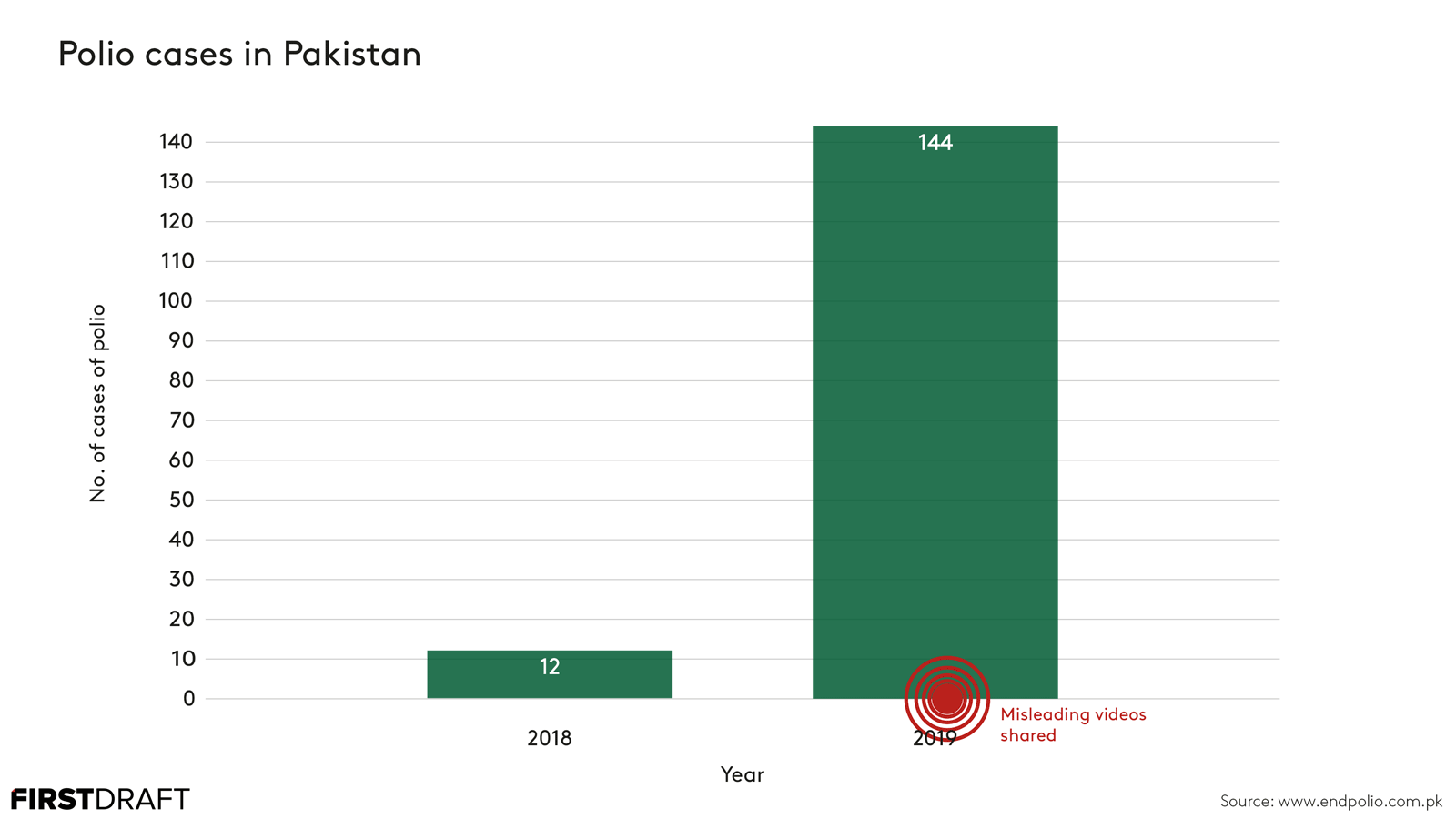
In 2019, there were 12 times the number of polio cases than there were in 2018.
The country was on course to successfully immunise 39 million children under the age of five before the staged videos went viral. Pakistani authorities suspended their anti-polio campaign on April 27, five days after the misinformation outbreak. Since then, two million children have gone unvaccinated.
A month later, Twitter rolled out its vaccine search tool, a notice designed to lead users to reliable sources when they search for vaccine-related terms on the platform. Facebook also announced efforts to tackle vaccine misinformation globally last March.
But on the ground in Khyber Pakhtunkhwa, the struggle to gain public trust in the polio inoculation is ongoing.
Discourse around it is still “surrounded by misconceptions”, said Dr Ali.
“When doubts and confusions arise it becomes difficult to convince [people] because the negative propaganda is too powerful,” he added.
Last month, two female polio workers were killed while on duty just a week after Pakistan’s first polio case of 2020 was confirmed in the province.
However, as a five-day campaign to inoculate 40 million children against polio began on February 17, Dr Ali is hopeful it can plug the immunity gap.
He expects thousands of vaccine refusals, but with each campaign they are fewer and fewer.
“I am personally very positive that we will get over polio.”
Stay up to date with First Draft’s work by subscribing to our newsletter and follow us on Facebook and Twitter.



